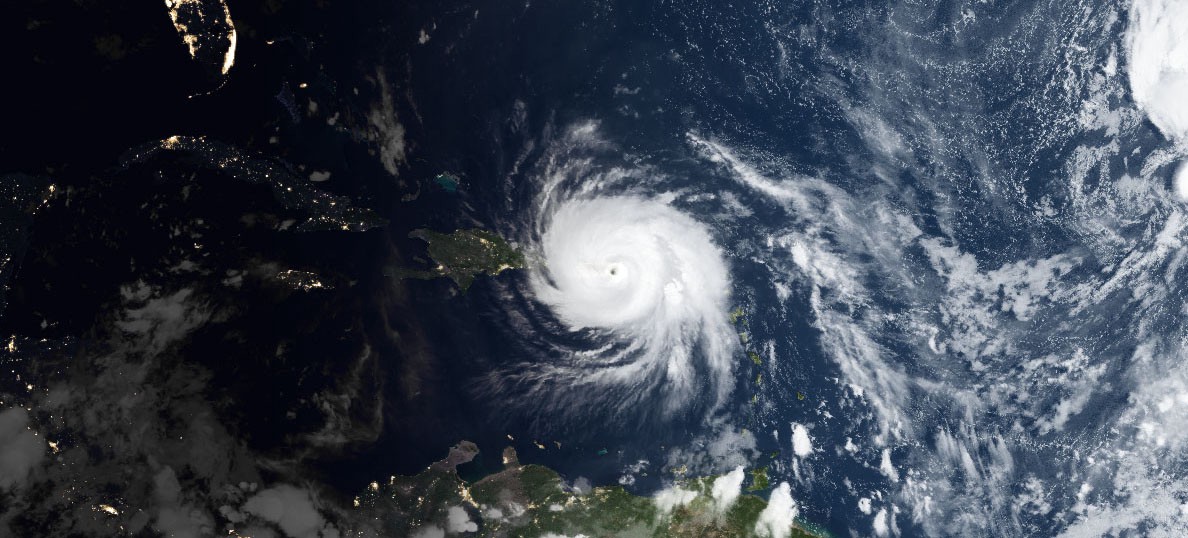
Gestures of love in Puerto Rico
In September 2017, two powerful hurricanes, Irma and Maria, struck the Caribbean within two weeks of each other. In general, Irma did not cause as much harm in Puerto Rico as we expected, but it did affect our Caribbean neighbours. Then began a wave of solidarity, generosity, and hospitality towards our sister islands. Little did we know that this would prepare us to adopt that same attitude in response to our own crisis two weeks later.
For nearly 30 hours, hurricane Maria crossed our island from Southeast to Northwest and affected the entire population: causing landslides, devastating vegetation, destroying homes, and resulting in the total collapse of our electricity, water, and communication systems. The storm left in its wake a death toll that remains unclear to this day.
Students respond
Although communicating through normal channels was impossible at first, we slowly began to hear about each other. And so began the stories: a student rode his bike to his local staff worker’s house to check up on him; another student borrowed a car to pick up his friends to celebrate their friendship in the midst of the catastrophe; a week later, that student used the car to volunteer at a relief centre established by a local church; two staff workers randomly bumped into each other in the same relief centre, each one volunteering with his own local church; when they met they joyfully learned that both churches were working together to deliver urgent aid to those who had not yet received it.
One of the student leaders made sure she got news from each of the students in her local group. She and her staff worker met up in a crowded shopping mall because it was the only accessible location that was open and safe.
Communication is still very difficult, but stable enough to establish that all members of the national movement and their families are relatively well, under the circumstances. It is also stable enough to share needs and service opportunities.
The movement celebrated World Student Day without being able to gather together as planned, but each one at home, praying for student mission. A while later, some students, staff workers, and graduates finally managed to get together and share their experiences and needs; they prayed together and right there, by having all things in common, some prayers were answered.

Never alone
When faced with such a terrible reality, one would expect an equivalent response: one that is as large-scale, impressive, and powerful as the destruction itself. And it is understandable that we would feel disappointed when our expectations were not met. Our plans fell through, our efforts were limited, and help did not always arrive in the way we expected. Nevertheless, we were never alone.
Flesh-and-blood hope
As Christmas approaches and we reflect on the birth of our saviour, we realise this, too, thwarted expectations. The Messiah was born in a place that was not appropriate for a king: in poverty, and amidst the scandal of a young pregnant virgin.
This is what we celebrate at Christmas. In less-than-ideal conditions, under the dominion and persecution of an abusive empire, Jesus our Lord was born as a small baby. And that is how our faith becomes present here and now.
As we believe in Jesus, we see his salvation, not in great political power or spectacular advertising campaigns, but in the small gestures of flesh-and-blood people who give themselves to their neighbour in love. The incarnation of God in the world, with all its humble glory, allows us to understand that there is deliverance from the suffering we are enduring, that there is hope, and that it will again be born in our midst. “God-with-us” is “God-as-one-of-us”. He is here among those who suffer, providing and strengthening, healing and comforting, weeping and encouraging.
Two months after this natural disaster, we still suffer, hope, and serve. We do not want to romanticize the need. Anxiety increases daily. The island has lacked electricity and drinkable water for over two months. Many still have no roof over their heads, and thousands have emigrated seeking refuge. Students have resumed classes during the day, but some do not have a place to study at night and are unable to fulfill the requirements of their courses.
There is still much work to be done. But the story of Jesus gives us hope. We can come together and keep giving our all, putting others first, believing now more than ever that it makes sense to follow a Master who teaches us that we are loved, created with dignity, and that we can live a life worthy of that identity.
José Julio Martínez, staff worker with ABU Puerto Rico
